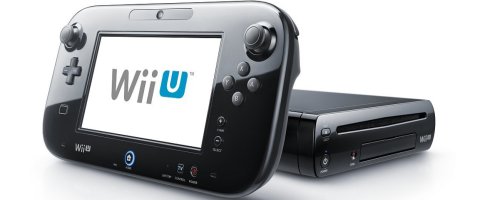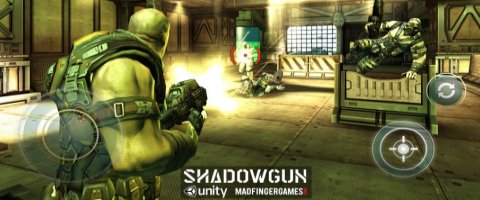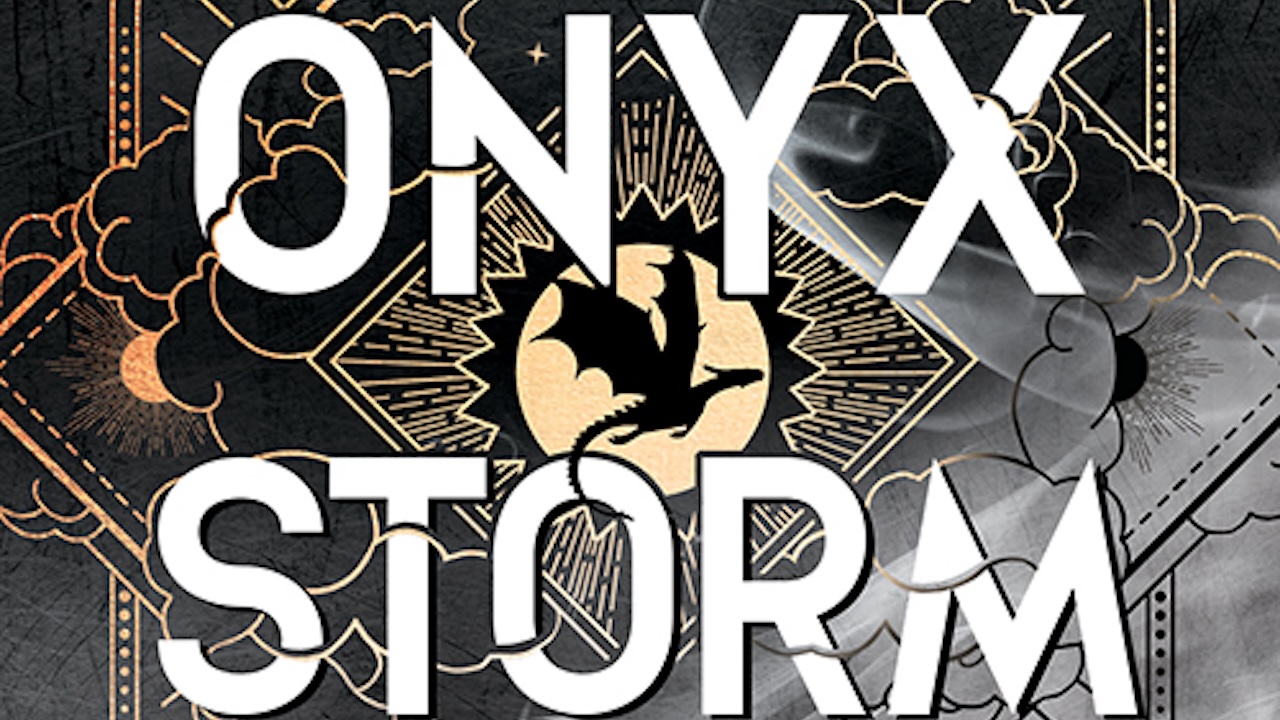Interview: Why The Unity Engine Is A Good Fit For Wii U

Just a few days ago Unity Technology and Nintendo announced a partnership indicating that the Unity Engine will be supported by the Wii U and that all Unity Engine games will have complete support for Wii U porting or the ability to build a game from the ground up for the console using the Unity Engine. Well, before the actual announcement took place we had a chance to talk with David Helgason, the CEO of Unity, about some of the benefits of using the Unity Engine on the Wii U as well as what designers can look forward to from the collaboration between the indie-friendly engine and Nintendo.
Helgason: It's a very big thing for us. It's probably a Unity first...but actually it's an industry first for this partnership.
Yeah, how to describe it...? We actually try to think of it in two ways, two parts. One is that we're pretty proud of working with Nintendo in this way and working closely with them. And the first part is that Nintendo will take Unity to formidable lengths and entrench and empress it for developers, for their internal first party, and second party and third party. And make sure that anyone within that ecosystem can benefit from Unity and get their hands on it and support for it.
On the other side, it's us taking our ecosystem – which, you know, is getting closer to bigger studios and bigger things. And [another] big part of it is small studios and people have been very successful on things like iOS and iPad and bringing that ecosystem to the Wii U and helping people to access that.
My take is that we're coming together to work on these ecosystems over this platform.
Gaming Blend: With Unity support being made available for Wii U along with the ability to allow for present Unity games to make the jump to the Wii U platform, are there any sort of limitations or does this mean we could actually see something like Interstellar Marines on the Wii U at some point?
Helgason: So...that's kind of up to Nintendo and the developers. We don't have any sort of control over that. But it will definitely be easy and very doable. We think it's going to happen and we'll do our very best to make it happen.
CINEMABLEND NEWSLETTER
Your Daily Blend of Entertainment News

Gaming Blend: Unity supports multithreaded functionality in game design, and given that Unity is now supported by the Wii U, is there an estimate on the clock speed and video memory of the Wii U's GPGPU and will it be able to take advantage of the multithreaded support for game's designed on the engine for the Wii U?
Helgason: I mean...like, these are things that – I'm not going to get into this because I think that – well, I'm not sure what's public and what's not. That's for Nintendo to announce and talk about.
But you know, we are working very hard to make this as optimal as possible for developers to gain access to and communicate with the hardware. So when it's allowed – we're still a work in progress on this.
Gaming Blend: I see
Helgason: So, you know, it will be easy and accessible and we'll be as transparent as possible.
Gaming Blend: While the Wii U doesn't specifically use DirectX functionality, will the Unity Engine for the Wii U allow for DirectX 11 equivalent functionality in regards to shaders, soft and self shadowing as well as potential scalability for shader 5.0 (or higher)?
Helgason: Yeah. We'll do a – we'll make it potentially possible to do.
What's interesting is that our philosophy is always this: We have a match work flow and I'm sure we can make a decent game and prototype, and they're fun. And then we have a shared system that basically allows you to access the full capabilities of the hardware you run. That's going to be good whether you're running [software] on an iPhone, the Wii U, a gaming PC or whatever.
So what Unity is all about is the evolution from PC and you get really good cross-platform economics porting from one device to the other. But also, it's become layered between you and the hardware and layered between you and the controls. And you look back at some of the stuff we showed at the Unite Conference that we did about a month ago, and we showed some videos […] we were showing off our lighting technology and there's a demo of that, we call it a CG movie. It basically looks like a movie but it's actually in real-time.
There's a session where we walk in and pry open that movie and start moving things around – and of course all of that technology we're making available.
Gaming Blend: As a follow-up, given that the demo looks like CG even though it's actually running in real-time, is it possible that what we see in that video is capable of scaling for real-time use on the Wii U?
Helgason: Oh, it's just an example. It's not running on the Wii U at all. It's running on a big PC. But it's an example of how we're opening up the technology and making sure that you're not being bounded by the tools. Of course you will be bounded by the hardware you're on, right? By definition.
Gaming Blend: Yeah
Helgason: So Unity's job is to get really good tools and then get out of the way. So that's what we tried to do.
We started five years ago as guys in the basement and of course Unity was not very integral. So if you look back it was kind of a pitiful engine back then. But because it's become very popular we've had the ability to hire good engineers and the capabilities are growing up very vastly.
We've been growing up very quickly and in some areas we're even exceeding others. Basically if you look at the mechanisms and quality work, and the goal is to keep playing and adding all the higher interest that people can dream up.
Gaming Blend: Following up on that question, we know that Unity has a lot of support with its microtransaction store and a lot of [cross platform] middleware. When you mention how easy it is to design on other platforms using the Unity, is it possible we could be seeing the middleware tools closely associated with Unity (i.e,. Xaitment, Mixamo, etc.,) that developers use on PC and iOS making a 1:1 appearance for the Wii U?
Helgason: Yeah, pretty much. I'm not going to promise that everything translates across, because of the economy thing and you're not 100% done on how it works, but the intention is that I'm pretty sure everything will translate 1:1 over, and that's the capability of Unity.

Helgason: We have a great toolset, a great engine, it's very scalable – we're getting that all the time. But what we have delivered, what this creates is the amazing cross-platform economics that we have. As well as bringing one thing from one platform to another in a matter of days. But then they might end up spending weeks or months tuning the hardware; tuning the controls and all that. That's interesting, that's a creative error, that's not the work of just making [the engine] work again.
Combined with the fact that Unity is already semi-affordable and there's a free version for various uses and so on, so our intention is to make it where it's never uneconomically viable to use anything other than Unity.
Gaming Blend: One last question: Microsoft and Sony, early on, started off supporting the indie devs with things like XNA and the XBLIG, giving smaller developers a platform for their projects. Is it possible Unity and Nintendo could collaborate together to make something like this happen or is that entirely up to Nintendo?
Helgason: That will have to be Nintendo's – whatever their plans are they will have to announce them. That's not my job unfortunately. But we've had these kind of ideas before the Wii U that it would be great to make Unity into that kind of tool. We still believe it's going to happen, but I can't say when or how.
Our thanks to David Helgason for answering the questions. You can learn more about the Unity Engine over at the Official Website.
Staff Writer at CinemaBlend.
Why Josh Duhamel Leaving Hollywood Was Good For His Family (And His Relationship With Grass)
Watching Chloe Fineman Teach Drew Barrymore How To Do Her 'Sexy Walk' Is Hilarious, But I'm More Focused On Her Structured Minidress
Onyx Storm Is The Fastest Selling Adult Novel In 20 Years. So Why Don’t We Have Forward Momentum On The Screen Adaptation Yet?










